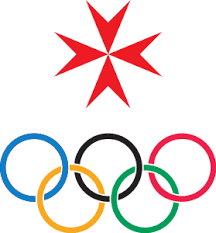The Maltese Olympic Committee (NOC Malta) is pleased to be a partner in the new Erasmus+ Project named “Strengthening Response Mechanism for Safeguarding in European Sports” (SAFE HARBOUR), which is coordinated by the European Olympic Committees EU Office (EOC EU Office). This initiative is dedicated to enhancing safeguarding mechanisms across European sport, creating safer environments for all.
About NOC Malta

Established in 1928, the NOC Malta is the supreme and exclusive authority on matters relating to Malta’s representation at the games under the jurisdiction of the International Olympic Committee. These include the Olympic Games, European Games, Mediterranean Games, the Youth Olympic Games and the European Youth Olympic Festival, and the Games of the Small States of Europe. Additionally, the NOC Malta serves as Malta’s Commonwealth Games Association, responsible for Team Malta at the Commonwealth Games and Youth Commonwealth Games.
The Committee’s main commitment is that of encouraging, promoting and funding Maltese participation in these games. It supports athlete development through various schemes and assists national federations in achieving their goals. Various commissions work diligently throughout the quadrennial to fulfil these objectives. These include: the Athletes’ Commission which are the voice of our athletes on the NOC Malta Executive Board; the Olympic Academy and Sports for All Commission which promote Olympic values through school and public activities; the Olympians Commission which fosters connections among Olympians; Women in Sport Commission which promotes the participation of women in all levels of sports in Malta; and the Youth Commission which collaborates with the technical staff to help emerging athletes reach new milestones.
The work of NOC Malta on safeguarding in sports to date
The role of NOC Malta within the SAFE HARBOUR project
Within the SAFE HARBOUR project, NOC Malta will play a critical role in tailoring the European Response framework to its national context. Responsibilities include drafting a National Strategy to guide safeguarding actions, delivering mandatory training for the leadership and National Federations, and hosting a National Multiplier Event to raise awareness among stakeholders. Additionally, NOC Malta will engage in peer-to-peer roundtables, contribute to thematic seminars, and disseminate the project results through various channels. By actively participating in all project activities, NOC Malta will help ensure the successful implementation and sustainability of safeguarding measures.
Background information on the SAFE HARBOUR project
The SAFE HARBOUR project, short for “Strengthening Response Mechanisms for Safeguarding in European Sport”, is a 30-month project co-funded by the European Union through the Erasmus+ Sport Programme 2024. Coordinated by the EOC EU Office, the consortium includes Thomas More and Asser Institute as experts on safeguarding, human rights and law, 2 International Federations (International Biathlon Union and International Ice Hockey Federations), and 20 National Olympic Committees (Belgium, Bosnia and Herzegovina, Croatia, Cyprus, Czechia, Denmark, Germany, Hungary, Kosovo, Latvia, Lithuania, Luxembourg, Malta, Montenegro, Norway, Poland, Portugal, Romania, Slovakia and Slovenia). Additionally, the International Olympic Committee (IOC) is involved as an outside resource.
The project seeks to strengthen the capacity of European NOCs and Federations to address safeguarding concerns by identifying gaps, developing a European Response framework, and fostering collaboration. This framework will be adapted to national contexts, complemented by training and awareness initiatives to enhance safeguarding measures at both national and European levels. Therefore, SAFE HARBOUR aims to equip partner NOCs and Federations with the tools and confidence to implement effective safeguarding measures while establishing a robust support network for Safeguarding Officers and laying the groundwork for a future IOC Regional Safeguarding Hub.
![]()
![]()